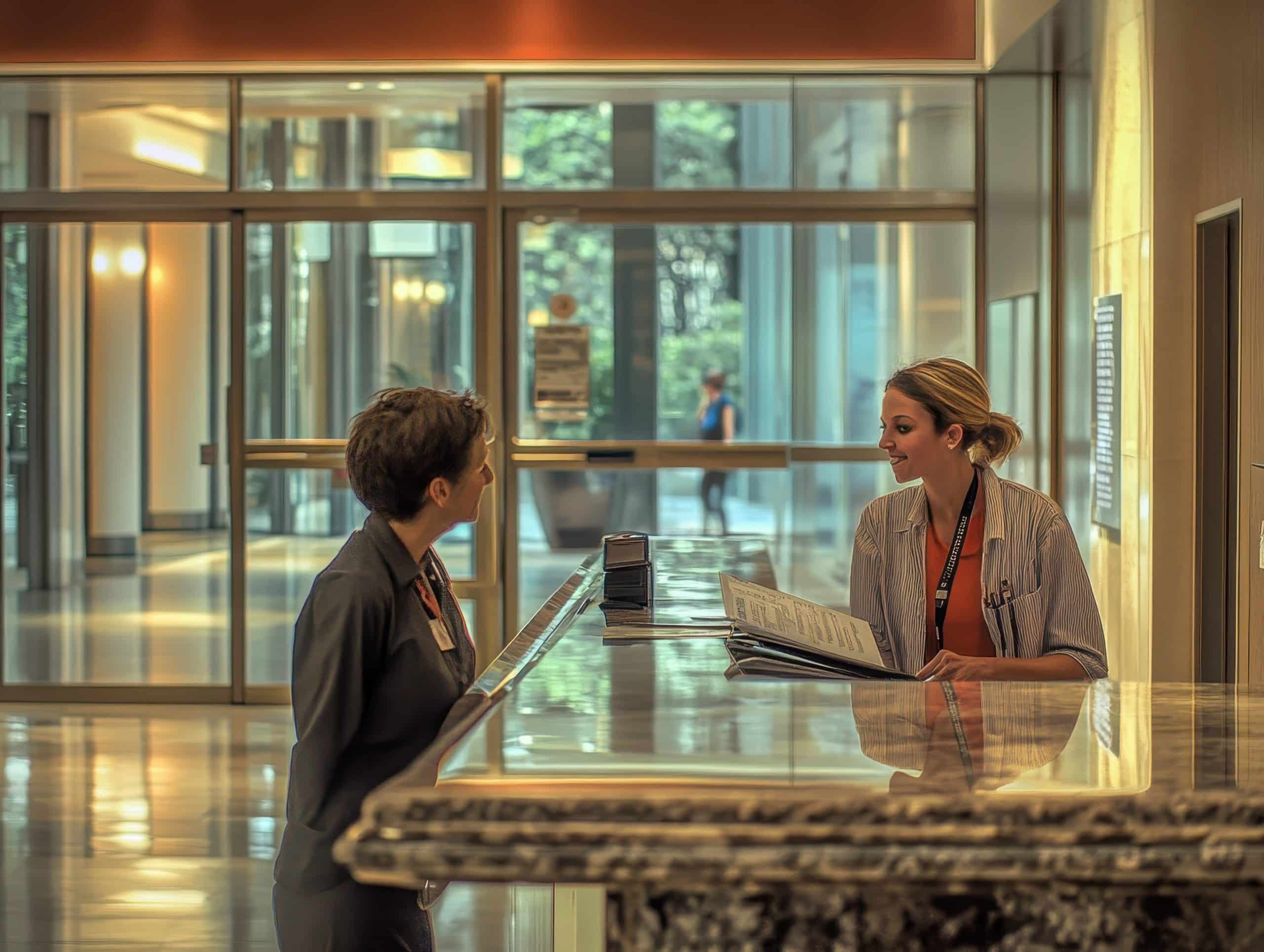A good hotel is more than just a place to sleep; it’s a sanctuary for travelers, providing comfort, convenience, and a memorable experience. The hospitality industry is highly competitive, and hotels must balance various factors to meet diverse guest expectations. This article explores the key elements that contribute to a good hotel, examines the characteristics of a great hotel, and delves into the factors that define a good hotel room and resort. We will also explore the challenges hotels face in balancing these aspects, with a specific focus on Krishibid Sea Palace, the best hotel in Kuakata, Bangladesh.
What Makes a Great Hotel?
When travelers think of a great hotel, they typically envision more than just a clean room and friendly staff. A great hotel excels in multiple areas, including service, amenities, location, and overall guest satisfaction.
1. Exceptional Service
Service is the cornerstone of any great hotel. A welcoming atmosphere begins at check-in, where well-trained staff anticipate guests’ needs. Personalized service, where staff remember a guest’s preferences or go the extra mile to solve problems, can turn a good stay into a great one. Great hotels often prioritize training to ensure staff are polite, efficient, and capable of handling all guest concerns, from simple requests to complex issues.
2. Luxurious and Functional Amenities
A well-equipped hotel should offer a variety of amenities tailored to the needs of its clientele. Free high-speed Wi-Fi, a gym, pool, spa, or even simple conveniences like 24-hour room service and complimentary breakfast are expected. Hotels catering to business travelers should have meeting rooms and business centers, while those targeting leisure tourists may offer entertainment options, tours, and recreational activities. Striking a balance between luxury and functionality is essential, as too many amenities without proper maintenance can negatively affect the guest experience.
3. Strategic Location
Location plays a crucial role in a hotel’s success. A good hotel is ideally situated near popular tourist attractions, business hubs, or transportation options, depending on its target audience. For example, hotels in beach destinations should provide easy access to the shore, while urban hotels should be close to shopping centers, landmarks, or convention centers. The location also affects a hotel’s price point and the type of clientele it attracts.
4. Cleanliness and Maintenance
No matter how luxurious a hotel is, cleanliness and proper maintenance are non-negotiable. Guests expect immaculate rooms, fresh linens, clean bathrooms, and well-maintained common areas. A hotel’s ability to consistently meet these basic standards significantly impacts its reputation. Regular maintenance of the property—whether it’s updating rooms or keeping the pool area pristine—ensures that a hotel remains in top shape.
5. Unique Character and Ambiance
Great hotels often distinguish themselves through unique characteristics, whether it’s the architecture, decor, or atmosphere. Hotels that incorporate local culture, history, or art into their design tend to stand out and provide a more authentic experience for guests. For instance, a hotel in a historic building or one that uses local materials and artwork can offer an experience that large, chain hotels may not.
What Makes a Good Hotel Room?
A hotel room is where guests spend most of their time, so it’s crucial that it meets specific standards to ensure comfort and satisfaction. A good hotel room should combine comfort, convenience, and aesthetics in a well-balanced manner.
1. Comfort
The most important aspect of any hotel room is comfort. This includes a high-quality bed with fresh, clean linens, a comfortable mattress, and supportive pillows. The room should be temperature-controlled, allowing guests to adjust the climate to their preference. Noise levels should also be kept to a minimum, as peace and quiet are essential for a restful night.
2. Practical Design and Layout
A good hotel room should have a practical and thoughtful layout, allowing for efficient use of space. Features like a well-lit desk for work, ample closet space, and easily accessible power outlets are crucial for functionality. In-room features such as a minibar, coffee maker, and safe add convenience to the guest’s stay. Ensuring that the room design considers guest needs—such as where to place luggage or store personal belongings—can greatly enhance the overall experience.
3. Technology and Connectivity
In today’s digital world, technology is a key element in any hotel room. High-speed Wi-Fi is an absolute must, and smart TVs with streaming services like Netflix or Hulu are increasingly expected. Additionally, easy-to-use lighting, climate control, and entertainment systems can add a level of sophistication and convenience.
4. Cleanliness
As with the hotel itself, cleanliness in the room is critical. A spotless bathroom, freshly laundered towels, and a room free of dust and odors are baseline expectations. Guests notice the smallest details, and a clean room can make the difference between a satisfied and dissatisfied guest.
5. Safety and Security
Guests want to feel secure during their stay. Good hotels provide in-room safes, secure locks, and sometimes even additional safety features like deadbolts or peepholes on doors. Well-lit corridors and accessible emergency exits further contribute to a sense of safety.
What Makes a Good Resort?
A resort, by definition, is more than just a place to sleep. It’s a destination in itself, offering a range of facilities and activities designed for relaxation and enjoyment. To make a resort truly great, several factors must come together.
1. Comprehensive Facilities
A good resort offers a range of facilities that cater to different types of travelers. From swimming pools, golf courses, and fitness centers to kids’ clubs and spas, a resort should provide something for everyone. Additionally, dining options should be diverse, offering a variety of cuisines and experiences to satisfy guests’ culinary preferences.
2. Activities and Entertainment
One of the main reasons people choose resorts is the availability of activities. From water sports to yoga classes, nature hikes, and evening entertainment, a good resort offers a well-rounded itinerary that keeps guests engaged throughout their stay. The ability to provide a range of experiences, whether relaxing or adventurous, is key to making a resort successful.
3. Location and Natural Surroundings
Resorts are often located in scenic areas—beaches, mountains, or countryside—so the natural beauty of the surroundings is crucial. Access to the beach, nearby hiking trails, or breathtaking views from the rooms can elevate the guest experience. Resorts that blend harmoniously with their environment, using eco-friendly designs or sustainable practices, also appeal to modern travelers.
4. All-Inclusive Packages
Many travelers prefer resorts that offer all-inclusive packages, where accommodation, meals, drinks, and sometimes activities are bundled into one price. This model allows guests to relax and enjoy their stay without worrying about added costs. However, the quality of food, beverages, and included activities must be high to justify the all-inclusive price.
5. Tranquility and Privacy
A key factor that distinguishes resorts from regular hotels is the level of privacy and tranquility they offer. Spacious rooms, private balconies or terraces, and secluded villas or suites enhance the feeling of exclusivity. Many guests go to resorts to escape their daily routine, so the resort’s ability to provide peace and quiet is a significant factor in its success.
Challenges in Balancing Guest Expectations
Running a hotel or resort involves balancing various factors to meet diverse guest expectations. For instance, offering a wide range of amenities requires significant investment in both infrastructure and staff. However, this can be a double-edged sword, as underutilized amenities may not justify the cost. Likewise, catering to both business travelers and vacationers presents challenges in providing appropriate services for both groups.
Another major challenge is maintaining consistent cleanliness and service quality, especially during peak seasons when occupancy rates soar. Hotels must find efficient ways to train staff and manage resources to ensure that high standards are met without compromising guest experience.
Krishibid Sea Palace: The Best Hotel in Kuakata, Bangladesh
Krishibid Sea Palace in Kuakata, Bangladesh, exemplifies many of the characteristics of a great hotel. Known for its strategic location by the beach, this hotel offers stunning views of the Bay of Bengal. Its proximity to the famous Kuakata Beach allows guests to witness both the sunrise and sunset over the ocean, a unique feature that attracts tourists from around the world.
1. Service Excellence
Krishibid Sea Palace is recognized for its exceptional service, with staff dedicated to ensuring guests have a pleasant and memorable stay. Personalized attention, quick problem resolution, and a warm, welcoming atmosphere set this hotel apart from others in the region.
2. Amenities and Facilities
The hotel offers a variety of amenities, including spacious rooms with modern conveniences, an on-site restaurant serving local and international cuisine, and recreational facilities such as a swimming pool and a fitness center. These amenities cater to both leisure and business travelers, making it a versatile choice for visitors to Kuakata.
3. Cleanliness and Maintenance
Krishibid Sea Palace is known for its immaculate upkeep, with a strong emphasis on cleanliness throughout the hotel. From well-maintained rooms to spotless common areas, guests consistently praise the hotel’s attention to detail.
4. Unique Character
The hotel incorporates local culture into its design and decor, offering guests an authentic Bangladeshi experience. The combination of modern amenities with traditional touches makes the Krishibid Sea Palace a standout choice in the region.
Conclusion
In conclusion, what makes a good hotel is a combination of factors, including exceptional service, cleanliness, well-designed rooms, and a range of amenities. Resorts, in particular, must provide comprehensive facilities and activities while maintaining a tranquil atmosphere. Balancing these elements can be challenging, but hotels like Krishibid Sea Palace in Kuakata, Bangladesh, demonstrate how these factors can come together to create an exceptional guest experience. By focusing on what truly matters to guests—comfort, service, and unique experiences—hotels can ensure lasting success in a competitive market.



